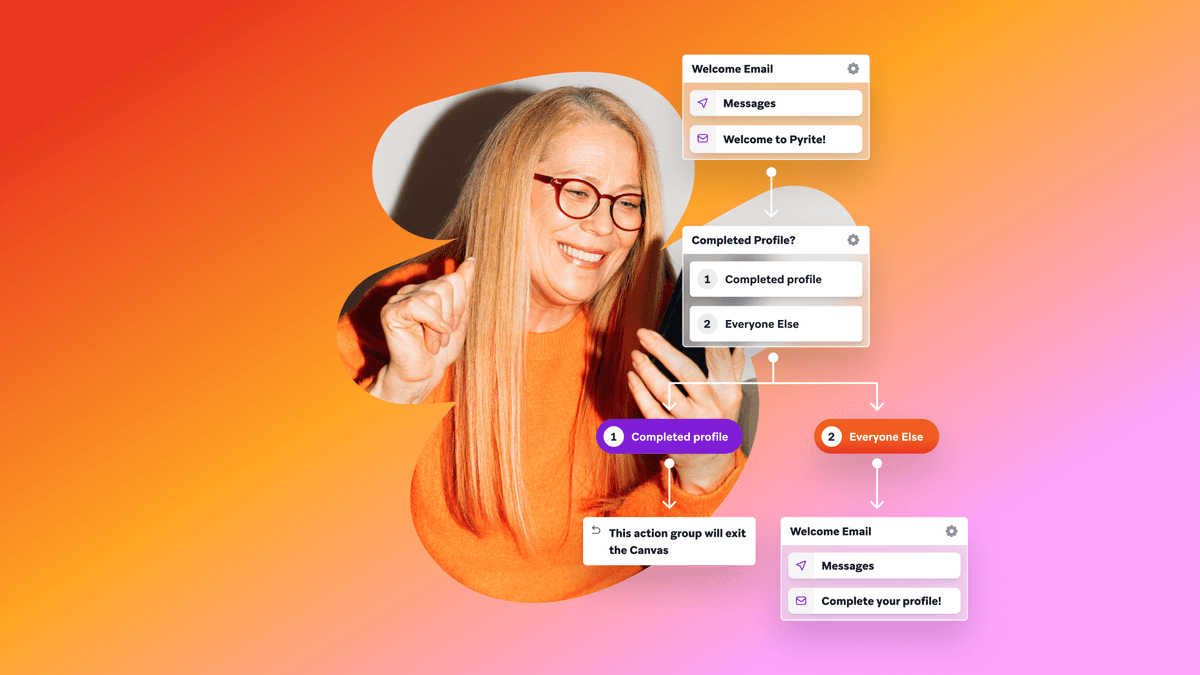Published on February 01, 2016/Last edited on February 01, 2016/7 min read


Today’s mobile consumers are everywhere—they rely on a combination of web, app, email, social media, and in-person experiences to inform their brand and buying choices. As a result, reaching customers across a variety of messaging channels (also known as multi-channel messaging) has become more important than ever.
The trick is figuring out how to communicate meaningfully across these multiple channels. And that’s no easy task when you’re trying to present a unified brand to a large audience while simultaneously tailoring your marketing messages and experiences to individual customer preferences.
User profiles are one of the most important tools available for managing modern multi-channel marketing. These profiles are a treasure trove of organized personal data about the people who engage with your brand on each channel. You can use this detailed information about individual customers to build personalized marketing campaigns across multiple channels while still maintaining a consistent brand experience.
Cookies have long been a fundamental tool for gathering user information on the web. However, mobile apps don’t support cookies. Instead, app marketers use customer relationship management (CRM) platforms, such as Appboy’s product suite, to create a rich profile for each individual user. These platforms collect detailed data (much like browser-based cookies) to help you craft effective marketing campaigns. CRM platforms are built around the all-important user profile.
Mobile user profiles are created the moment a customer opens your app and are continuously updated as the customer interacts with your brand across in-app channels and functions (like messages and app features) and out-of-app channels (like email). Each interaction adds more information to the profile.

On a broad level, knowing your customers and their goals is essential for building your business. Successful companies arecustomer-centric—building their marketing campaigns around their customers’ needs. User profiles provide a unique opportunity to really get to know your customers. Marketers can take that information and use it tobuild and deploy segmented campaigns that take into account personal preferences, habits, and past actions to deliver the most relevant experience possible—the experience most likely to end in a conversion.
User profiles can be used to:
Of course, even very basic user profiles can generate a lot of data. How do you find what’s useful in all of that?
Your brand will probably never use all of the information that’s possible to gather for user profiles—not all data points are relevant to every brand. To weed out the important bits, you’ll need to align your specific business goals with the relevant customer data. That way you can set up your various channels to collect the right demographic and behavioral data. If you’re looking to connect with teenagers in Mississippi, for example, you’ll need to make sure you have access to that age and location information. CRM services can help marketers decide which data to collect, including basic characteristics (i.e. gender, age, city, country, language, etc). Then, you’ll need to make sure your marketers and developers are on the same page in order to get the information you need from your visitors on each channel.
Once you’ve identified and collected the information you need, you can use it to shape your marketing efforts for each segment. For example, if you find that you have a large number of users who visit your app but don’t convert, you can target them with more information or more incentives.
Of course, you can never lose sight of your customer-centric model. Put yourself in your customers’ (and potential customers’) shoes. Make sure your messages are appropriate and not overbearing—people can become uncomfortable with marketing efforts that suggest a brand knows a lot about them personally, especially if they don’t remember sharing the information being referenced.
As with every other aspect of your business, it all boils down to meeting your customers’ needs. User profile data can help you understand who your customers are and, thus, how to speak to them. Those same profiles help to keep your brand consistent and reliable across every platform while simultaneously allowing you to provide targeted, personalized marketing campaigns that will provide value and delight your customers.
Sign up for regular updates from Braze.





